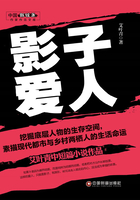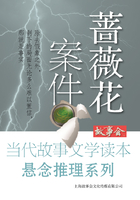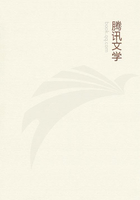THE PERSUASION OF FASHION: FEELING GUARDS O'ER ITS OWN
Carrie was an apt student of fortune's ways-of for Time's superficialities. Seeing a thing, she would immediately set to inquiring how she would look, properly rated to it. Be it known that this is not fine feeling, it is Not wisdom. The greatest minds are not so afflicted; and On the contrary, the lowest order of mind is not so disturbed. Fine clothes to her were a vast persuasion; they spoke tenderly and Jesuitical for themselves. When she came within earshot of their pleading, desire in her bent a willing ear. The voice of the so-called inanimate! Who shall translate for us the language of the stones?
"My dear," said the lace collar she secured from Partridge's, "I fit you beautifully; don't give me up."
"Ah, such little feet," said the leather of the soft new shoes; "how effectively I cover them. What a pity they Should ever want my aid."
Once these things were in hand, on her person. She might dream of giving them up; the method by which they came might intrude itself so forcibly that she would ache to be rid of the thought of it, but she would not give them up. " Put on the old clothes-that torn pair of shoes," was called to her by her conscience in vain. She could possibly have conquered the fear of hunger and gone back; the though of hard work and a narrow round of suffering would, under the last pressure of conscience have yielded, but spoil her appearance? -be old-clothes and poor-appearing?-never!
Drouet heightened her opinion on this and allied subjects in such a manner as to weaken her power of resisting their influence. It is so easy to do this when the thing opined is in the line of what we desire. In his hearty way, he insisted upon her good looks. He looked at her admiringly, and she took it at its full value. Under the circumstances, she did not need to carry herself as pretty women do. She picked that knowledge up fast enough for herself. Drouet had a habit, characteristic of his kind, of looking after stylishly dressed or pretty women on the street and remarking upon them. He had just enough of the feminine love of dress to be a good judge-not of intellect, but of clothes. He saw how they set their little feet, how they carried their chins, with what grace ands sinuosity they swung their bodies. A dainty, self-conscious swaying of the hips by a woman was to him as alluring as the glint of red wine to a toper. He would turn and follow the disappearing vision with his eyes. he would thrill as a child with the unhindered passion that was in him. He loves the thing that women love in themselves, grace. At this their own shrine, he Knelt with them, an ardent devotee.
"Did you see that women who went by just now?" he said to Carrie on the first day they took a walk together. "Fine stepper, wasn't she?"
Carrie looked, and observed the grace commended.
"Yes, she is" she returned, cheerfully, a little suggestion of possible defect in herself awakening in her mind. If that was so fine, she must look at it more closely. Instinctively, she felt a desire to imitate it. Surely she could do that too.
When one of her mind sees many things emphasized and reemphasized and admired, she gathers the logic of it and applies accordingly. Drouet was not shrewd enough to see that this was not tactful. He could not see that it would be better to make her feel that she was competing with herself, not others better than herself. He would not have done it with an older, wiser woman, but in Carrie he saw only the novice. Less clever than she, he was naturally unable to comprehend her sensibility. He went on educating and wounding her, a thing rather foolish in one whose admiration for his pupil and victim was apt to grow.
Carrie took the instructions affably. She saw what Drouet liked; in vague way she saw where he was weak. It lessens a woman's opinion of a man when she learns that his admiration is so pointedly and generously distributed. She sees but one object of supreme compliment in this world, and that is herself. If a man is to succeed with many women, he went he must be all in all to each.
In her own apartments Carrie saw things that were lessons in the same school.
In the same house with her live an official of one of the Theatres, Mr. Frank A. Hale, manager of the Standard, and his wife, a pleasing- looking brunette of thirty-five. They were people of a sort very common in America today, who live respectably from hand to mouth. Her wife, quite attractive affected the feeling of youth, and objected to that sort of home life which means the care of a house and the raising of a family. Like Drouet and Carrie, they also occupied three rooms on the floor above. Not long after she arrived Mrs. Hale established social relations with her, and together they went about. For a long time this was her only companionship, and the gossip of the manager's wife formed the medium, through which she saw the world. Such trivialities, such praises of Wealth, such conventional expression of morals as sifted through this passive creature's mind, fell upon Carrie and for the while confused her.
On the other hand, her own feelings were a corrective influence. Their constant drag to something better was not to be denied. By those things which address the heart was she steadily recalled. In the apartments across the hall were a young girl and her mother. They were from Evansville, Indiana, the wife and daughter of a railroad treasurer. The daughter was her to study music, the mother to keep her company.
Carrie did not make their acquaintance, but she saw the daughter coming in and going out. A few times she had seen her a the piano in the parlor, and not infrequently had heard her play. This young woman was particularly dressy for her station, and wore a jeweled ring or two which flashed upon her white fingers as she played.
Now Carrie was affected by music. her nervous composition responded to certain strains, much as certain strings of a harp vibrate when a corresponding key of a piano is struck. She was delicately molded in sentiment and answered with vague ruminations to certain wistful chords. They awoke longings for those things which she did not have. They caused her cling closer to things she possessed. One shorts song the young lady played in a most soulful and tender mood. Carrie heard it through the open door from the parlor below, In was at that hour between afternoon and night when, for the idle, the wanderer, things are apt to take on a wistful aspect. The mind wanders forth on far journeys and returns with sheaves of withered and departed joys. Carrie sat at her window looking out. Drouet had been away since ten in the morning. She had amused herself with a walk, a book by Bertha M. Clay which Drouet had let there, though she did not wholly enjoy the latter, and by changing her dress for the evening. Now she sat looking out across the park as wistful and depressed as the nature which craves variety and life can be under such circumstances. As she contemplated her new state, the strain from the parlor below stole upward. Within it her to the things which were best and saddest within the small limit of her experience. She became for the moment a repentant.
While she was in this mood Drouet came in, bringing with him an entirely different atmosphere. It was dusk and Carrie had neglected to light the lamp. The fire in the grate, too, had burned low.
"Where are you, Cad?" he said, using a pet name he had given her.
"Here," she answered.
There was something delicate and lonely in her voice, but he could not hear it. he had not the poetry in him that would seek a woman out under such circumstances and console her for the tragedy of life. Instead, he struck a match and lighted the gas.
"Hello," he exclaimed," you've been crying."
Her eyes were still wet with a few vague tears.
"Pshaw," he said, " you don't want to do that."
He took her hand, feeling in his good-natured egotism that it was probably lack of his presence which had made her lonely.
"Come on, now," he went on; "it's all right. Let's waltz a little to that music."
He could not have introduced a more incongruous proposition. It made clear to Carrie that he could not sympathize with her. She could not have framed thoughts which would have expressed his defect or make clear the difference between them, but she felt it. It was his first great mistake.
What Drouet said about the girl's grace, as she tripped Out evening accompanied by her mother, caused Carrie To perceive the nature and value of those little moodish Ways which women adopt when they would presume to be Something. She looked in the mirror and pursed up her Lips, accomplishing it with a little toss of the head, as the Had seen the railroad treasurer's daughter do. She caught Up her skirts with an easy swing, for had not, Drouet remarked that in her and several others, and Carrie was Naturally imitative. She began to get the hang of those Little things which the pretty women who has vanity invariably adopts. In shorts, her knowledge of grace Doubled, and with her appearance changed. She became a girl of considerable taste.
Drouet noticed this. He saw the new bow in her hair and the new way of arraying her locks which she affected one morning.
"You look fine that way, Cad," he said.
"Do I?" she replied, sweetly. It made her try for other effects that selfsame day.
She used her feet less heavily, a thing that was brought About by her attempting to imitate the treasurer's daughter's graceful carriage. How much influence the presence Of that young women in the same house had upon her it Would be difficult to say. But, because of all these things When Hurstwood called he had found a young women Who was much more than the Carrie to whom Drouet had First spoken. The primary defects of dress and manner Had passed. She was pretty, graceful, rich in the timidity Born of uncertainty, and with a something childlike in her Large eyes which captured the fancy of this starched and conventional poser among men. It was the ancient attraction of the fresh for the stale. If there was a touch of appreciation left in him for the bloom and unsophistication which is the charm of youth, it rekindled now. He looked into her pretty face and felt the subtle waves of young life radiating therefrom. In that large clear eye he could see nothing that his blasé nature could understand as guile. The little vanity, if he could have perceived it there, would have touched him as a pleasant thing.
"I wonder," he said as he rode away in his cab, " how Drouet came to win her."
He gave her credit for feelings superior to Drouet at The first glance.
The cab plopped ailing along between the far-receding lines of gas lamps on either hand. He folded his gloved hands and saw only the lighted chamber and Carrie's face. He was pondering over the delight of youthful beauty.
"I'll have a bouquet for her," he though. "Drouet won't mind."
He never for a moment concealed the fact of her attraction for himself. He troubled himself not at all about Drouet's priority. He was merely floating those gossamer threads of thought which, like the spider's he Hoped would lay hold somewhere. He did not know, he could not guess, what the result would be.
A few weeks later Drouet, in his peregrinations, encountered one of his well-dressed lady acquaintances in Chicago on his return from a short trip to Omaha. He Had intended to hurry out to Ogden Place and surprise Carrie, but now he fell into an interesting conversation And soon modified his original intention.
"Let's go to dinner," he said, little reckoning any chance meeting which might trouble his way.
"Certainty," said his companion.
They visited one of the better restaurants for a social Chat. It was five in the afternoon when they met; it was Seven thirty before the last bone was picked.
Drouet was just finishing a little incident he was relating, and his face was expanding into a smile, when Hurstwood's eye caught his own. The latter had come in with several friends, and, seeing Drouet and some woman, not Carrie, drew his own conclusion.
"Ah, the rascal," he though, and then, with a touch of righteous sympathy, " that's pretty hard on the little girl."
Drouet jumped from one easy though to another as he caught Hurstwood's eye. He felt but every little misgiving, until he saw that Hurstwood was cautiously pretending not to see. Then some of the latter's impression forced itself upon him. He though of Carrie and their last meeting. By George, he would have to explain this to Hurstwood. Such a chance half-hour with an old friend must not have anything more attached to it really warranted.
For the first time he was troubled. Here was a moral Complication of which he could not possibly get the ends. Hurstwood would laugh at him for being a fickle boy. He would laugh with Hurstwood. Carrie would never Hear, his present companion at table would never know And yet he could not help feeling that he was getting the was not guilty. He broke up the dinner by becoming dull, and saw his companion on her car. Then he went home.
"He hasn't talked to me about any of these later flames," though Hurstwood to himself. " He thinks he cares for the girl out there."
He ought not to think I'm knocking around, since Have just introduced him out there," though Drouet.
"I saw you," Hurstwood said, genially, the next time. Drouet drifted in to his polished resort, from which he Could not stay away. He raised his forefinger indicatively, as parents do to children.
"An old acquaintance of mine that I ran into just as was coming up from the station," explained Drouet.
"She used to be quite a beauty."
"Still attracts a little, eh?" returned the other, affecting to jest.
"Oh, no," said Drouet, "just couldn't escape her this time."
"How long are you here?" asked Hurstwood.
"Only a few days."
"You must bring the girls down and take dinner with me," he said. "I'm afraid you keep her cooped up out there. I'll get a box for Joe Jefferson."
"Not me," answered the drummer. "Sure I'll come."
This pleased Hurstwood immensely. He gave Drouet no credit for any feelings toward Carrie whatever. He Envied him, and now, as he looked at the well-dressed salesman, whom he so much liked, the gleam of the Rival glowed in his eye. He began to " size up" Drouet From the standpoints of wit and fascination. He began to Look to see where he was weak. There was no disputing that, whatever he might think of him as a good fellow, he felt a certain amount of contempt for him as a lover. He could hoodwink him all right. Why, if he would just Let Carrie see one such little incident as that of Thursday, it would settle the matter. He ran on it thought, almost exulting, the while he laughed and chatted, and Drouet felt nothing. He had no power of analyzing the glance and the atmosphere of a man like Hurstwood. He stood and smiled and accepted the invitation while his friend examined him with the eye of a hawk.
The object of this peculiarly involved comedy was not Thinking of either. She was busy adjusting her thoughts And feelings to newer conditions, and was not in danger of suffering disturbing pangs from either quarter.
One evening Drouet found her dressing herself before that glass.
"Cad," said he, catching her, "I believe you're getting vain."
"Nothing of the kind," she returned, smiling.
"Well, you're mighty pretty," he went on, slipping his arm around her. "Put on that navy-blue dress of yours and I'll take you to the show."
"Oh, I've promised Mrs. Hale to go with her to the Exposition to-night," she returned, apologetically.
"You did, eh? He said, studying the situation abstractedly. "I wouldn't care to go to that myself."
"Well, I don't know," answered Carrie, puzzling, but not offering to break her promise in his favor.
Just then a knock came at their door and the maidservant handed a letter in.
"He says there's an answer expected," she explained.
"It's from Hurstwood," said Drouet, noting the superscription as he tore it open.
"You are to come down and see Joe Jefferson with me to-night," it ran it part. "It's my turn, as we agreed the other day. All other bets are off."
"Well, what do you say to this?" asked Drouet, innocently, while Carrie's mind bubbled with favorable replies.
"You had better decided, Charlie," she said, reservedly.
"I guess we had better go, if you can break that engagement upstairs," said Drouet.
"Oh, I can," returned Carrie without thinking.
Drouet selected writing paper while Carrie went to change her dress. She hardly explained to herself why this latest invitation appealed to her most.
"Shall I wear my hair as I did yesterday?" she asked, as she came out with several articles of apparel pending.
"Sure," he returned, pleasantly.
She was relieved to see that he felt nothing. She did Not credit her willingness to go to any fascination Hurstwood Held for her. It seemed that that combination of Hurstwood, Drouet, and herself was more agreeable Than anything else that had been suggested. She arrayed Herself most carefully and they started off, extending Excuses upstairs.
"I say." Said Hurstwood as, they came up the theatre lobby, "we are exceeding charming this evening." Carrie fluttered under his approving glance.
"Now, then," he said, leading the way up the foyer into the theater.
If ever there was dressiness it was here. It was the personification of the old term spick and span.
"Did you ever see Jefferson?" he questioned, as he leaned toward Carrie in the box.
"I never did," she returned.
"He's delightful, delightful," he went on giving the commonplace rendition of approval which such men know. He sent Drouet after a program, and then discoursed to Carrie concerning Jefferson as he had heard of him. The former was pleased beyond expression, and was really hypnotized by the environment, the trappings of the box, the elegance of her companion. Several times their eyes accidentally met, and then there poured into hers such a flood of feeling as she had never before experienced. She could not for the moment explain it, for in the next glance or the next move of the hand there was seeming indifference, mingled only with the kindest attention.
Drouet shared in the conversation, but he was almost Dull in comparison. Hurstwood entertained them both, and now it was driven into Carrie's mind that here was the superior man. She instinctively felt that he was stronger and higher, and yet with a so simple. By the end of the third act she was sure that Drouet was only a kindly soul, but otherwise defective. He sank every moment in her estimation by the strong comparison.
"I have had such a nice time," said Carrie, when it was all over and they were coming out.
"Yes, indeed," added Drouet, who was not in the least aware that a battle had been fought and his defenses weakened. He was like the Emperor of China, who sat glorying in himself, unaware that his fairest provinces were being wrested from him.
"Well, you have saved me a dreary evening," returned Hurstwood. "Good-night."
He took Carrie's little hand, and a current of feeling Swept from one to the other.
"I'm so tried," said Carrie, leaning back in the car when Drouet began to talk.
"Well, you rest a little while I smoke," he said, rising and then he foolishly went to the forward platform of the Car and left the game as it stood.














